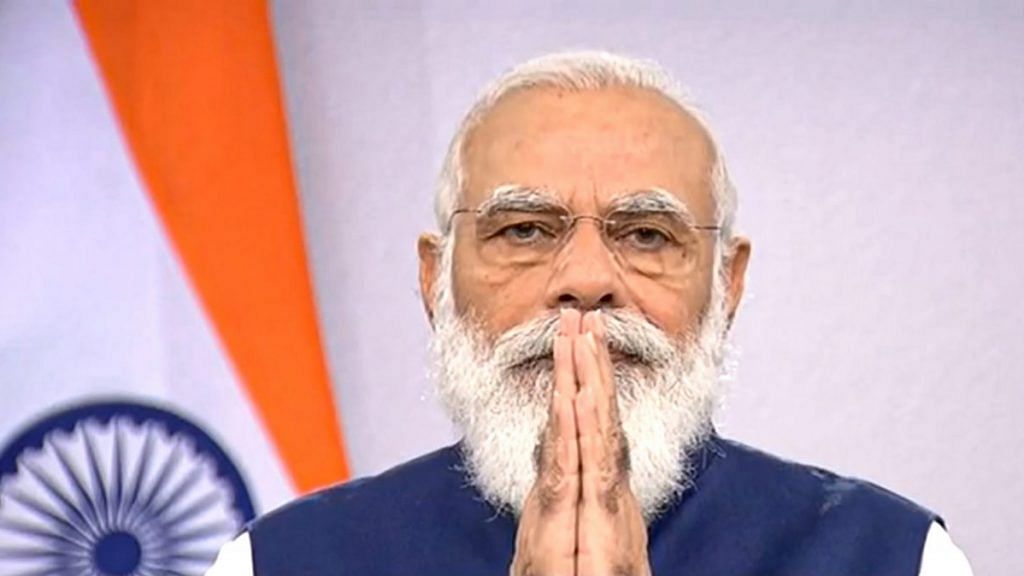Adar Poonawalla’s recent tweet prompted some discussion on India’s vaccination strategy. The CEO of the Serum Institute of India, one of the world’s largest vaccine manufacturers, asked if “the government of India will have 80,000 crore available, over the next one year” to pay for the purchase and distribution of the Covid-19 vaccine to everyone in the country. My own colleagues estimate that it will cost between Rs 50,000-250,000 crore (depending on the vaccine) to vaccinate 80 per cent of India’s population within a year.
It is understandable for most of us to be daunted by such big numbers since ordinary citizens do not normally deal with lakhs of crores of rupees on a daily basis. But Rs 80,000 crore is not such a big deal from a public finance perspective. At 0.4 per cent of India’s current GDP, it is smaller than the Rs 1 lakh crore that the Narendra Modi government has allocated for NREGA this year. It is significant but well within the ability of the Union government to finance. When asked how he would find 1 per cent of India’s GDP to finance farm loan waivers in 2008, I recall then finance minister P. Chidambaram brushing off the question as a trifling matter. Of course, those were days of high economic growth, but even in today’s straitened circumstances, it is not too difficult for the Narendra Modi government to set aside Rs 80,000 crore for something as vital as vaccination against Covid-19. Affordability is not a problem.
But should the government pay to vaccinate everyone? The answer is an unambiguous “Yes”.
Also read: Vaccine likely in India by first half of 2021 if ‘good results by year-end’, top scientist says
Greater returns on investment
A government-financed vaccination programme is justified on two grounds: on what economists call positive externalities and on simple cost-benefit analysis. Let me explain.
By creating herd immunity, vaccines benefit even those who are not vaccinated. Because people know this, there is a tendency for some people to free-ride — which means they do not vaccinate themselves knowing that others will. The higher the price of the vaccine, the greater the likelihood that people will not take the vaccine. In economics jargon, we say that there is a market failure because the private demand for vaccine will be below the socially optimum demand. It is thus quite possible that too few people will get themselves vaccinated, leading to a situation where herd immunity is not achieved; the epidemic will linger on. Subsidising the price of the vaccine will enable more people to get the vaccine. Subsidising the vaccine entirely — that is, making the vaccine available free of cost to everyone — will maximise India’s chances of achieving herd immunity quickly. Public health alone provides ample justification for a government-financed universal vaccination programme. In fact, India already does this for other diseases: the Universal Vaccination Programme provides vaccines against over a dozen major diseases free of charge to newborns and infants. The same logic applies to vaccination against Covid-19.
A simple cost-benefit analysis shows that a vaccination programme has high return on investment for the government. The sooner we develop immunity to the coronavirus, the better the chances of resuming economic growth. India’s current GDP is around Rs 200 lakh crore and at an overall tax-to-GDP ratio of around 15 per cent, the Union and state governments earn around Rs 30 lakh crore in tax revenues. So for every 1 per cent of economic growth, the government gets an additional Rs 30,000 crore in tax revenues. If growth drops, government revenues fall too. In other words, even if we take a very narrow view of financial return on investment (ROI) for the government, a national vaccination programme will pay for itself within a year or two if it causes a couple of percentage points of additional economic growth. If we were to take a broader view, as is more appropriate, economic growth means that the livelihoods of hundreds of millions of people will improve, as will the life chances of those disproportionately impacted by the pandemic.
Also read: Why the old, comorbid, children & those who WFH shouldn’t be first in line for Covid vaccine
Not a monopoly
It thus makes abundant sense for the Modi government to make the vaccine available to everyone free of cost. This does not mean that the government must hold a monopoly over its distribution — those willing to pay more to get vaccinated in private medical facilities, those who prefer a different vaccine and those unwilling to wait for their turn should be able to purchase the vaccine at prevailing market prices.
It is quite likely that the global demand for a vaccine will surge as soon as it is available, and prices will rise to the extent that supply falls short of the requirement. How can India ensure that it gets adequate doses at low enough prices? The Modi government should avoid imposing price controls and quotas on domestic manufacturers, because these could well exacerbate shortages. A far better way would be to declare advance purchase commitments to a few manufacturers such that they can invest in the required manufacturing capacity and set up supply chains.
Adar Poonawalla did well to bring an important national priority back into the public discourse. It is important that the Modi government reassure India’s globally competitive vaccine manufacturers that funding will not be a problem.
The author is the director of the Takshashila Institution, an independent centre for research and education in public policy. Views are personal.
